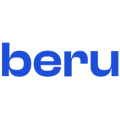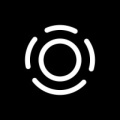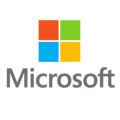Summary
Details
Features
Cut through the green tape
We don't push agendas. At Net Zero Compare, we cut through the hype and fear to deliver the straightforward facts you need for making informed decisions on green products and services. Whether motivated by compliance, customer demands, or a real passion for the environment, you’re welcome here. We provide reliable information—why you seek it is not our concern.
Deep dive
Main Features
Comprehensive Product Lifecycle Tracking: AGRIVI Traceability enables detailed monitoring of the production process, from initial planting or harvesting to consumer purchase, covering each stage of the production journey.
Farming Location Data: Provides information on the specific locations where crops are grown, aiding in traceability and transparency. This feature is particularly useful for consumers who, for ethical reasons, wish to avoid buying products from certain locations.
Quality Control Measures and Compliance: Demonstrates to consumers the implementation of quality control measures to ensure the safety and quality of the products throughout the supply chain. Ensures adherence to relevant food safety regulations and standards, helping to avoid recalls and improve consumer trust.
Consumer Transparency: Offers features like QR codes on products, allowing consumers to access detailed traceability reports on their mobile devices.
Sustainability Initiatives: Analyze the climate footprint of the supply chain, resource usage and environmental impacts. Show how ESG goals are being met.
Target Users
Retail Chains: AGRIVI Traceability is designed for retail chains that produce their crops or source through contract farming. A significant portion of their sales revenue comes from fresh fruit and vegetable sales and consumers are increasingly curious about the safety and sustainability information.
Food and Beverage Companies: Food and beverage companies that are concerned about sustainability across the supply chain.
Pricing
Specific price information about the AGRIVI Traceability software is not disclosed by AGRIVI on their website or elsewhere in the public domain. For accurate pricing information, farmers and banks might wish to contact the company directly. AGRIVI may provide custom quotes based on the specific needs and requirements of individual retail chains or food and beverage companies. This allows them to tailor the pricing to fit the scale and scope of each client's operations effectively.
Case Studies
Case I
Client: Nestlé (Global)
Background: Nestlé is a leader in the global food and beverage sector. With sustainability and food safety as top priorities, the company has published standards that contractors across its vast supply chain are required to comply with. To meet this objective, supply chain traceability is crucial for Nestlé.
Challenge: Nestlé faced several complex challenges in managing its supply chain for fresh produce. Ensuring the quality and safety of products was key. With produce sourced from multiple farms, often across different regions, maintaining consistent quality standards posed a significant hurdle. Traceability from farm to table was essential to meet regulatory requirements and to quickly address any food safety issues, such as contamination or recalls. Nestlé needed a system capable of handling vast amounts of data from diverse sources, including information on planting, harvesting, transportation, and storage conditions.
Result: Nestlé's implementation of the Traceability software reportedly led to 100% supply chain transparency. It gave suppliers the tools they needed to comply with the high sustainability and food safety standards contained in Nestlé's Responsible Sourcing Standards.
Case II
Client: Kaufland (Croatia)
Introduction: Kaufland, a leading European retail chain, sought to enhance its supply chain transparency and food safety standards by adopting the AGRIVI Traceability software. With a diverse product range and a significant emphasis on fresh produce, Kaufland aimed to ensure that its products met the highest quality and safety standards while also providing transparency to consumers. By integrating AGRIVI's advanced traceability system, Kaufland intended to gain a comprehensive view of its entire supply chain, from farm to shelf, thereby boosting consumer trust and operational efficiency.
Challenge: With growing customer demand for transparency and local sourcing, the company saw the importance of providing a traceability solution informing customers about the provenance of products while also supporting local suppliers. Kaufland Croatia needed a solution that offered more than existing sourcing methods. The goal was to establish a system that would help create a deeper connection between consumers and the origin of the goods they buy.
Results: The Traceability software helped Kaufland to monitor the whole production process, from the farm to retail shelf. This extensive visibility allowed Kaufland to quickly spot and deal with issues in the supply chain, lowering the risk of food safety risks and ensuring the general quality of its fresh fruits and vegetables. The software also fostered better communication and coordination with suppliers, ensuring that the same quality and safety standards were adopted across the board. As a result, Kaufland not only improved its operational efficiency but also boosted consumer confidence in its products.
Market Outlook
The market for compliance and traceability solutions, valued at $3.17 Billion in 2022, is expected to reach $7.60 Billion by 2029 (source: Maximize Market Research). Along with AGRIVI Traceability, other offerings on the traceability solutions market include SafetyCulture, Inspired Technology Systems, VicinityFood, and Safetychain. As consumers across the world increasingly look out for sustainability and safety related information and regulations prescribe or mandate traceability across product supply chains, the demand for traceability solutions is likely to be sustained demand for traceability solutions going forward.






